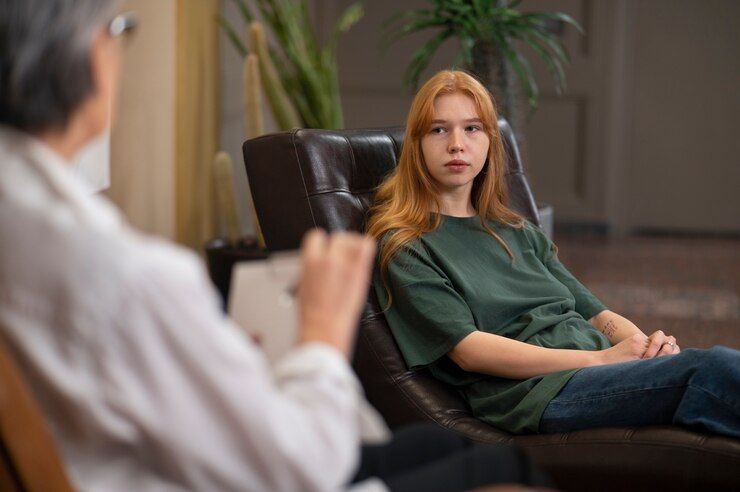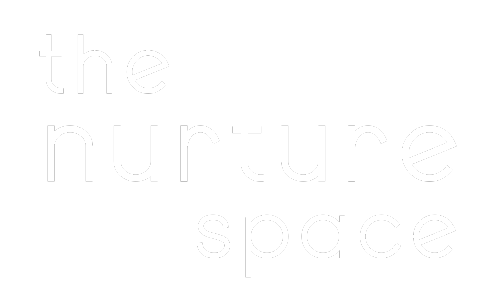The Nurture Space
Complex PTSD Therapy in Adelaide
Complex PTSD, a severe mental health condition closely related to post-traumatic stress disorder (PTSD), emerges from chronic trauma that continues or repeats over months or years. Unlike PTSD, which can result from a single traumatic event, complex PTSD is generally associated with long-term trauma, creating profound and lasting effects on emotional and mental well-being.
This introduction delves into the complexities of complex PTSD, highlighting the need for specialised complex PTSD therapy to address the unique aspects of the condition. Understanding complex PTSD is crucial for effective treatment and recovery.

Understanding Complex PTSD
One of the primary focuses of family therapy is providing essential assistance and support for membComplex PTSD is a nuanced condition that develops from an accumulation of traumatic events, often beginning in early childhood or adolescence. These traumatic events can include ongoing physical abuse, sexual abuse, emotional abuse, or neglect.
The repeated trauma leads to a range of psychological and emotional issues, making complex PTSD notably more severe than classic post-traumatic stress disorder.
This section will explore the symptoms, such as difficulty controlling emotions and negative self-view, that differentiate complex PTSD from other mental health disorders, emphasising its recognition as a separate diagnosis.
ers of a family unit, whether that means offering advice about dealing with behavioural issues in children, or helping young people and adults navigate growing pains - family counsellors have you covered with support that addresses individual concerns while strengthening relations among family units.
The Impact of Traumatic Events
The impact of traumatic events on individuals can lead to a spectrum of psychological disorders, including complex PTSD and acute stress disorder. This section examines how repeated trauma and traumatic memories embed themselves deeply in an individual's psyche, manifesting as complex PTSD.
It also discusses how these events disrupt normal life, causing significant impairment in personal, social, and professional environments. By understanding the profound effects of these traumatic events, mental health professionals can better tailor their interventions.
Complex PTSD and Related Mental Health Conditions
Family counselling does not follow an all-or-nothing model; rather, it embraces and recognises the diversity of family structures. From same-sex parents raising young children together with extended families or older people raising them themselves to older people raising grandchildren - family counselling provides tailored strategies and services tailored specifically to address each family's particular circumstances and ensure all family members can access support based on their unique circumstances.

Complex Trauma in Childhood and Adulthood
Childhood is a critical period, and traumatic experiences during this time can lead to the development of complex PTSD. This section addresses how childhood abuse and chronic trauma set the groundwork for complex PTSD, manifesting in adulthood as difficulties in forming healthy relationships and managing symptoms.
It also covers the impact of traumatic events experienced in adulthood, such as domestic violence or human trafficking, and their contribution to the onset of complex PTSD, emphasising the pervasive nature of this condition across different stages of life.

Diagnosing Complex PTSD
Diagnosing complex PTSD involves understanding the specific criteria that set it apart from other mental health conditions such as posttraumatic stress disorder and borderline personality disorder. Mental health professionals rely on a combination of patient history, reported symptoms, and sometimes, psychological assessments to identify the presence of complex PTSD.
This diagnosis considers the extended exposure to traumatic events, the variety of additional symptoms like difficulty controlling emotions and persistent sadness, and the depth of impact on an individual’s functioning. It's essential to accurately diagnose complex PTSD to provide appropriate and effective treatment strategies.
Therapeutic Approaches to Complex PTSD
Therapeutic approaches to treating complex PTSD are diverse, ranging from cognitive processing therapy to trauma-focused therapy. These methods aim to address the multifaceted nature of complex PTSD, which includes dealing with traumatic memories, managing symptoms, and improving emotional regulation.
Mental health professionals tailor these therapies to meet the individual needs of those experiencing complex PTSD, emphasising the development of healthy relationships and the restructuring of negative thought patterns. Effective complex PTSD therapy fosters significant improvement in managing the long-term effects of chronic trauma.
Complex PTSD and Related Mental Health Conditions
Family counselling does not follow an all-or-nothing model; rather, it embraces and recognises the diversity of family structures. From same-sex parents raising young children together with extended families or older people raising them themselves to older people raising grandchildren - family counselling provides tailored strategies and services tailored specifically to address each family's particular circumstances and ensure all family members can access support based on their unique circumstances.

Role of EMDR in Treating Complex PTSD
Eye Movement Desensitization and Reprocessing (EMDR) is a prominent therapy used to treat complex PTSD, focusing on processing deeply traumatic memories and reducing their long-lasting effects. This therapy involves the patient recalling traumatic events while the therapist directs their eye movements, aiming to lessen the emotional impact of the memories.
EMDR has been shown to help individuals with complex PTSD gain control over their emotional responses and reduce symptoms of anxiety and depression, making it a valuable tool in the arsenal of psychological interventions for complex PTSD.

Psychological Interventions for Complex Trauma
Psychological interventions for complex trauma are crucial in addressing the intricate symptoms and behaviours associated with complex PTSD. These interventions often involve a combination of psychological therapies, such as exposure therapy and cognitive-behavioural techniques, which help patients confront and process traumatic events in a safe environment.
Mental health professionals work to strengthen the individual’s coping mechanisms, address ongoing issues of self-perception, and mitigate the impact of traumatic stress. The goal is to move beyond mere symptom management to achieve long-term resilience and emotional well-being.
Complex PTSD and Emotional Regulation
Individuals with complex PTSD often experience significant challenges in emotional regulation, frequently encountering intense episodes of explosive anger or persistent sadness. Therapy focuses on helping individuals develop skills to manage strong emotions effectively.
Techniques might include mindfulness practices, cognitive restructuring, and emotional coping strategies, which are taught and reinforced by mental health professionals in therapeutic settings. Improving emotional regulation is fundamental to alleviating the symptoms of complex PTSD and enhancing overall mental health and stability.
Building Healthy Relationships After Complex Trauma
For individuals struggling with complex PTSD, building and maintaining healthy relationships can be a significant challenge due to issues such as difficulty controlling emotions and developing unhealthy relationships rooted in their traumatic experiences.
Complex PTSD therapy focuses on helping individuals understand and improve their interaction patterns, facilitating the formation of stable, supportive relationships. This is achieved through therapeutic techniques that enhance communication skills, emotional understanding, and trust-building.
Mental health professionals play a crucial role in guiding those affected by complex PTSD toward healthier interpersonal dynamics and emotional connections.

The Role of Support Groups in Recovery
Support groups offer a unique therapeutic advantage for individuals with complex PTSD by providing a space where they can share experiences and strategies for coping with similar challenges. These groups, facilitated by trained mental health professionals, help members feel less isolated in their experiences and more empowered to manage symptoms of complex PTSD.
The collective sharing of stories and solutions fosters a supportive community environment, crucial for long-term recovery. Moreover, discussing traumatic events and ongoing struggles in a group setting can significantly alleviate the emotional burden of complex PTSD.

Complex PTSD in Special Populations
Complex PTSD can manifest uniquely across different populations, such as military veterans, survivors of domestic violence, and victims of human trafficking. These groups often experience complex post-traumatic stress from long-term traumatic events unique to their circumstances.
Treatment strategies need to be tailored to address the specific types of trauma experienced by these groups. This includes specialised interventions that acknowledge and treat the deeply traumatic impacts of combat, ongoing physical abuse, or extreme stress from captivity and exploitation, ensuring that therapy is relevant and effective.
Long-Term Management of Complex PTSD
Managing complex PTSD is an ongoing process that often requires a combination of psychological therapies, medication, and continuous support. Long-term management strategies focus on reducing PTSD symptoms, improving emotional regulation, and increasing the individual's ability to handle life stresses and triggers.
Therapeutic efforts include teaching coping skills for dealing with traumatic memories and explosive anger, fostering resilience, and promoting long-term emotional well-being. Mental health professionals must be adaptive in their approaches, often updating treatment plans to align with the evolving needs of those living with complex PTSD.
Innovative Research and Future Directions in Therapy
The field of complex PTSD therapy is continually evolving, with new research shedding light on more effective treatment methods and interventions. Innovations in psychological therapies, such as advancements in trauma-focused cognitive-behavioural therapy and exposure therapy, are showing promising results.
Furthermore, ongoing studies by organisations like the World Health Organization and the American Psychiatric Association are exploring the biological underpinnings of complex PTSD, such as changes in the prefrontal cortex and the body's stress response systems.
These insights are crucial for developing targeted therapies that address the specific needs of those affected by complex PTSD, ensuring that future treatments are both effective and scientifically grounded.

The Global Perspective on Complex PTSD
Complex PTSD is a mental health condition recognized across the globe, affecting diverse populations subjected to chronic trauma, such as those experiencing war, severe ongoing abuse, and natural disasters. Different cultures may perceive and treat complex PTSD in various ways, which can impact the accessibility and effectiveness of mental health services.
The World Health Organization and other international health bodies are working to standardise the understanding and treatment of complex PTSD, ensuring that individuals worldwide receive informed and sensitive care that considers cultural nuances.

The Economic and Social Impact of Complex PTSD
Complex PTSD extends beyond individual suffering, impacting economic systems and social relationships. Individuals with complex PTSD may experience significant impairment in their ability to work, contributing to higher rates of unemployment and financial dependency.
Socially, the challenges of complex PTSD, such as difficulty controlling emotions and maintaining healthy relationships, can lead to isolation and strained family dynamics. This section explores how complex PTSD affects communities and economies, advocating for comprehensive strategies to address these broader social and economic consequences.
Advances in Treatment Approaches for Complex PTSD
This section will explore the latest advances in treatment methods for complex PTSD, highlighting innovative therapies and interventions that have shown promise in clinical settings. It will cover developments in trauma-focused cognitive-behavioural therapy, the increasing use of technology in treatment like virtual reality therapy, and the emerging use of pharmacotherapy tailored to treat specific symptoms of complex PTSD, such as severe anxiety and intrusive thoughts.
This examination not only reflects the progress made in understanding and treating complex PTSD but also provides a hopeful outlook for future advancements that could offer more personalised and effective treatment options for sufferers.
Complex PTSD and Legal Issues
Individuals with complex PTSD often face unique legal challenges, including navigating disability benefits and the legal recognition of their condition. This section discusses the intersections between complex PTSD and the law, focusing on how legal frameworks can either support or hinder the recovery process.
Advocacy for better health policies and legal protections plays a crucial role in improving the lives of those with complex PTSD, ensuring they receive the rights and resources necessary to manage their condition effectively.

Conclusion
This concluding section summarises the critical points discussed throughout the article, reinforcing the importance of recognizing complex PTSD as a severe mental health condition that requires specialised treatment and ongoing support.
It calls for increased awareness and resources to ensure that those affected by complex PTSD can access effective therapies and support systems. Lastly, it encourages individuals struggling with complex PTSD to seek help and assures them that with the right approach, recovery is possible, emphasising the potential for resilience and healing.
Session Pricing
Initial Trauma Therapy Session: $275
Follow Up Trauma Therapy Session: $220
Please Note:
Sessions are not covered under Medicare's Mental Health Care Plan.
Some Private Health Cover Rebates may apply.
Ready to find out more?
We are here to support you on your healing journey. Book a free 15 minute Discovery Call to chat with our Therapist, Niki Gelekis.
